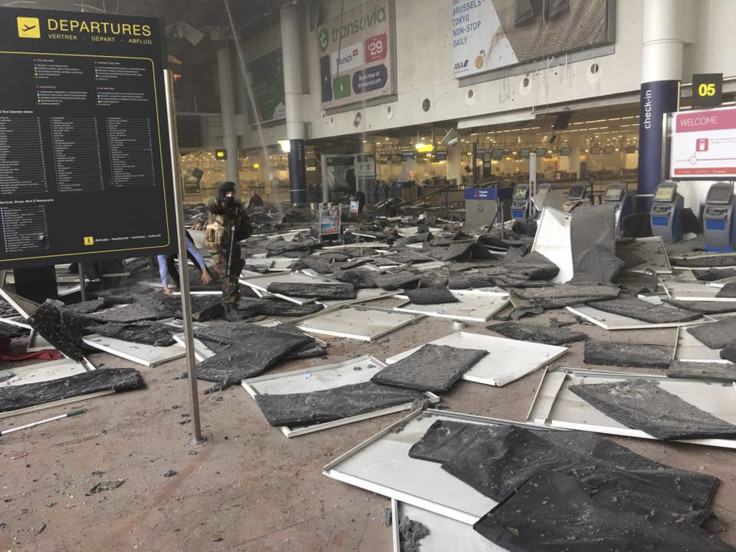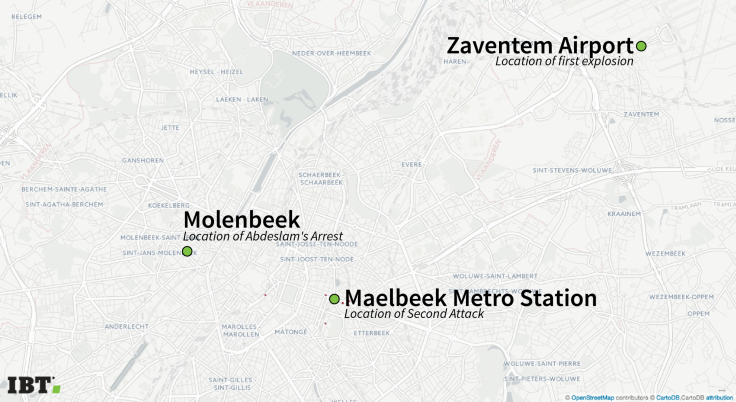Brussels Attack Could Embolden ISIS Sympathizers, New Recruits As City Comes To Standstill

The Telegram messenger app dedicated to members of the Islamic State group went dark in the hours after a series of explosions in Brussels killed at least 30 people and injured hundreds. Not one message went through the telephone app for almost two hours as security officials scrambled to secure the city and began searching for a way to hold someone, or some group, accountable. Then, in multiple languages, the militant group also known as ISIS claimed responsibility for the deadly attacks. Belgian authorities have yet to release details on those responsible for the attacks.
The announcement reverberated throughout the group’s online forums and on its social media accounts. Members and sympathizers of the militant group praised the attack as a “victory” and a “cause for celebration.” Although Belgian authorities have yet to determine whether the explosions were carried out by ISIS, analysts say the attack will embolden sympathizers of the group. Those sympathizers will not be scared off by security officials arresting Salah Abdeslam, a key figure responsible for carrying out the attacks in Paris in November.
“ISIS takes people from obscurity to infamy,” said Mia Bloom, an expert on terrorism from Georgia State University. “From their perspective this has been successful because they managed to have multiple attacks that pretty much closed the country down, that basically brought the country to a standstill. That is going to be counted as a huge success and inspiration for wannabes and copycats.”

The explosions in Brussels, as well as the attacks in France, have an impact on not only people who may follow and support ISIS, but also other extremist groups across the globe such as Boko Haram in Nigeria and al Qaeda in northern Africa. Analysts say attacks like the one in Brussels give confidence to people who are on the edge of going from passive supporters to active members.
“ISIS and al Qaeda didn’t inspire extremism, extremism inspired them,” said Haras Rafiq, a counterterrorism expert from the Quilliam Foundation, a counterextremism think tank based in the U.K. “We have a global jihadist insurgency. Whether it is al Qaeda or ISIS it almost becomes irrelevant from a societal perspective. The way they operate in terms of their cause ... to bring around utopian Islamist caliphate through the use of violence is concurrent among all of these groups.”
Meanwhile, in Iraq and Syria where ISIS first emerged, the group is dodging U.S. coalition airstrikes while trying to hold on to its limited oil reserves. The attack in Brussels, Bloom said, boosts morale on the battlefield.
“It mobilizes the base. It’s a way of projecting power and influence,” Bloom said. “At a time when ISIS is losing ground in Iraq and Syria, the only successes they have are by getting their Western minions to do horrible things against civilians in the West.”
It is still unclear who was responsible for the attacks in Brussels Tuesday. Some experts said the attacks could be connected to the arrest of Abdeslam. Others say those who carried out the attacks in Brussels could be a part of another terrorist cell in the city.
“In the coming months, the Belgian and European response to the wave of Islamic State networked and inspired attacks will likely influence the future of the Islamic State as it loses ground in Syria and Iraq,” said Clint Watts, a fellow at the Foreign Policy Research Institute, a think tank in Philadelphia.
Brussels houses the highest number of people who have traveled to Iraq and Syria and who have returned from the battlefield.
“The choice for those still at large in the network is to either go to ground and elude authorities or immediately accelerate any potential plot or plots currently being prepared,” Watts said. “Last week’s arrest of Abdeslam and today’s failure to detect and disrupt a major terrorist attack similar to that of Paris suggests a far more ominous counterterrorism problem in Europe — incompetence.”
There are ongoing raids and searches in parts of Brussels by security officers, but there has been no announcement of arrests.
© Copyright IBTimes 2025. All rights reserved.





















